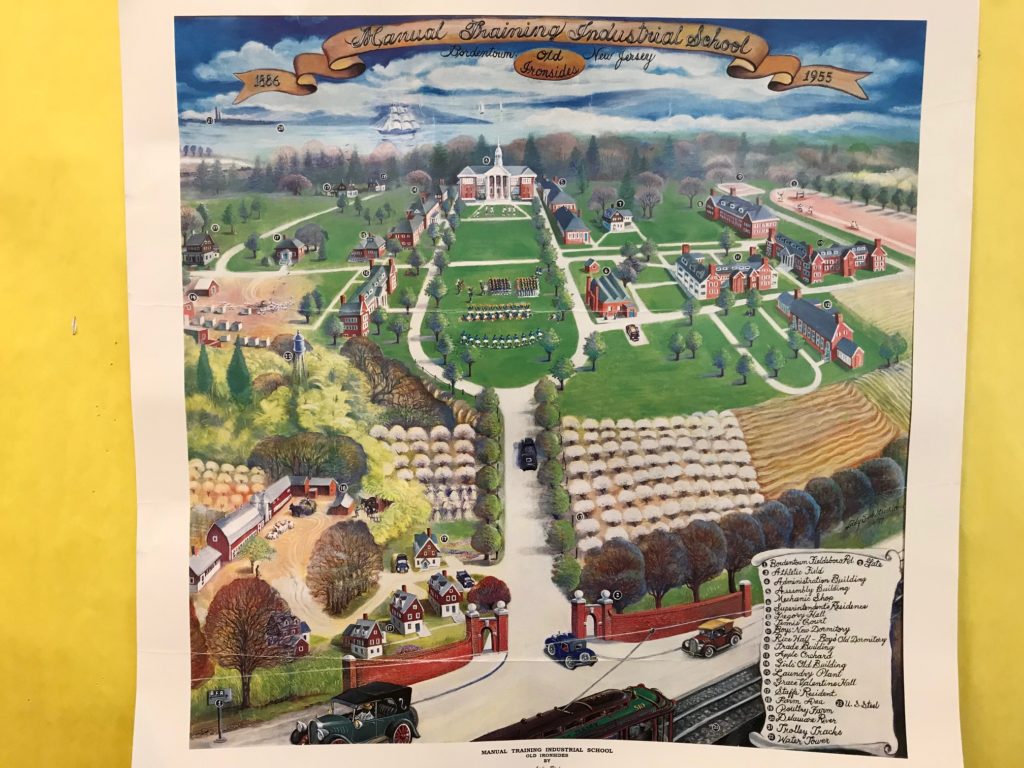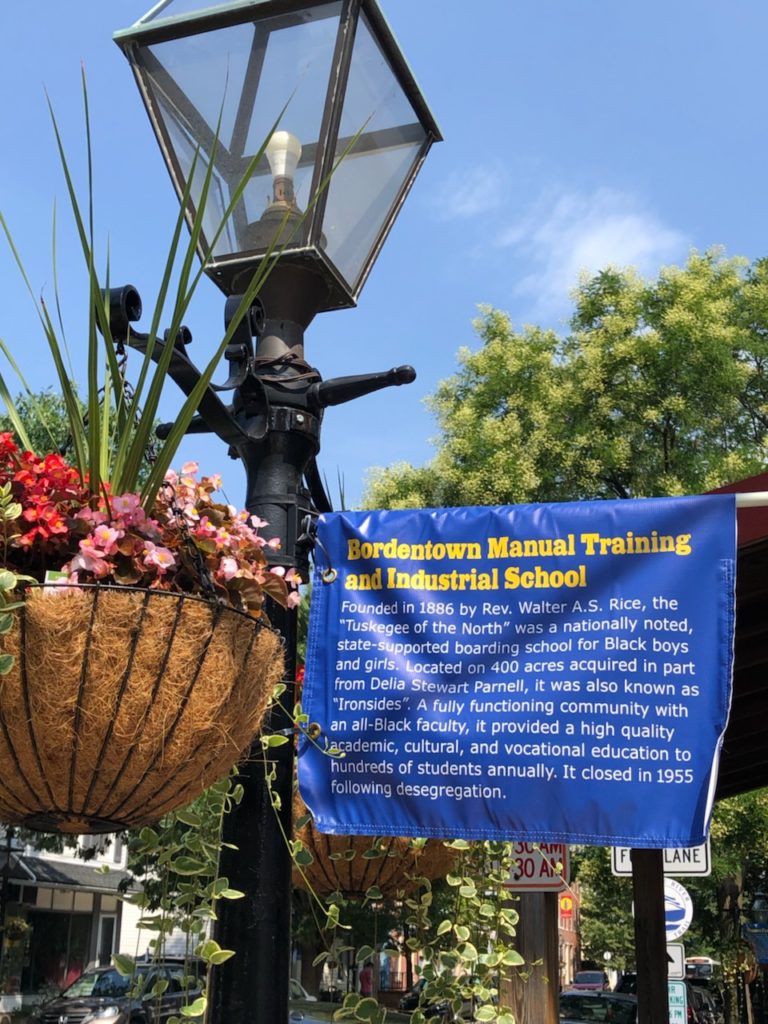Between 1886 and 1955, an arguably iconic school was established on a bluff above the Delaware River, about 10 miles south of Trenton, NJ. Officially known as the Manual Training and Industrial School for Colored Youth, it has also been known as Bordentown, for where it was located, and as “Tuskegee of the North.” An Indianapolis school earlier headed by MTIS’s long-time principal, William Valentine, was lauded in the Deweys’s Schools of Tomorrow; I’ve argued that MTIS met many of Dewey’s requirements for the right kind of industrial education — as well as some educational priorities articulated by W.E.B. Du Bois. Listed below are several articles, and a few books, that set the school in the context of industrial training for African-American students. Menand’s book on the Metaphysical Club is included because it puts discussion of manual training in historical perspective. The image at upper right was installed by the Bordentown Historical Society in the summer of 2019 as part of celebrating the school’s history.

- Derrick P. Alridge, “Conceptualizing a Du Boisean Philosophy of Education: Toward a Model for African-American Education,” Educational Theory 49, 3 (Summer 1999): 359-279.
- Zoe Burkholder, “’Integrated Out of Existence’: African American Debates over School Integration versus Separation at the Bordentown School in New Jersey, 1886-1955,” Journal of Social History, Fall 2017, 1-33.

- James. D. Anderson, “Black Vocational Education” in Harvey Kantor and David Tyack, eds., Work, Youth, and Schooling: Historical Perspectives on Vocationalism in American Education. Palo Alto: Stanford University Press, 1982.
- W.E.B. Du Bois, “Education and Work,” Journal of Negro Education 1, 1 (April 1932): 60-74 (originally delivered as a graduation address at Howard University, 1930).
- T. Thomas Fortune, “The Kind of Education the Afro-American Most Needs,” published 1898 in Hampton University’s Southern Workman; reprinted in Shawn Leigh Alexander, ed., T. Thomas Fortune: The Afro-American Agitator. Gainesville: University Press of Florida, 2008.
- Connie Goddard, “Bordentown: Where Dewey’s ‘Learning to Earn’ Met Du Boisian Educational Priorities, Education and Culture 35 (1) July 2019:49-70; “The Bordentown School as Institution and Idea: The Manual Training and Industrial School Honored Educational Priorities of Washington, Du Bois, and Dewey,” New Jersey Studies, Summer 2018, 99-128.
- Clyde Hall, Black Vocational, Technical, and Industrial Arts Education: Development and History. Chicago: American Technical Society, 1973. (This is a comprehensive and valuable, but largely ignored, nationwide survey of schools such as Bordentown.)
- James Levy, “Forging African-American Minds: Black Pragmatism, ‘Intelligent labor,’ and a New Look at Industrial Education,” American Nineteenth-Century History 17, 1 (2017): 43-73.
- Louis Menand, The Metaphysical Club: A Story of Ideas in America. New York: Farrar, Strauss and Giroux, 2001.
- John Rury and Shirley Hill, The African-American Struggle for Secondary Education, 1940-1980: Closing the Graduation Gap New York: Teachers College Press, 2011), 34-35.
- William R. Valentine, Jr., “Bordentown Prepares for Industry,” Opportunity: The Journal of Negro Life 17, 1: 11-14.